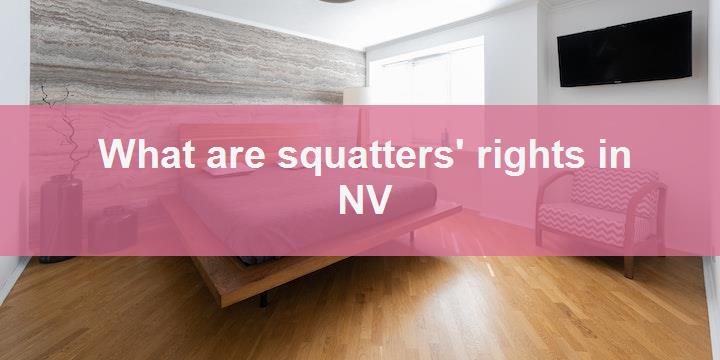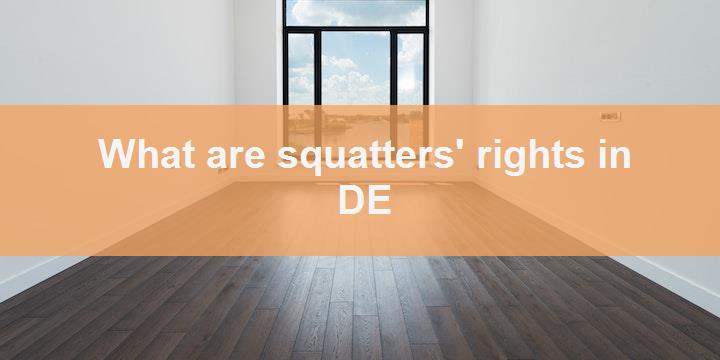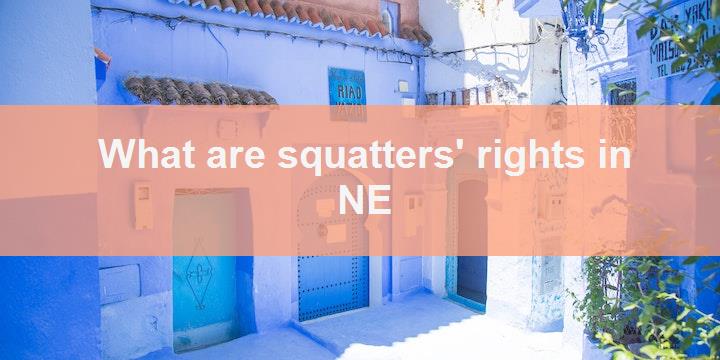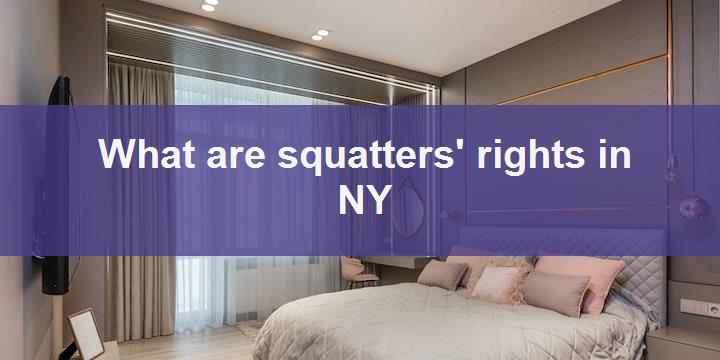What are squatters’ rights in Nevada?
Firstly, it’s important to understand that squatters’ rights are also known as adverse possession laws. Secondly, to acquire squatters’ rights in Nevada, a person must occupy someone else’s land for at least five years. Thirdly, during this time, the person must improve the land in some way or pay property taxes on it. Additionally, the land must not be actively used or cultivated by the owner. Finally, once the five-year requirement is met, the squatter can make a legal claim to the property, and the owner may be forced to go to court to defend their ownership.
What is the squatting/squatter?
Squatting is a complex concept that can be difficult to understand. However, it’s important to know what it is and how it works. First and foremost, a squatter is someone who occupies a property or piece of land without the owner’s permission. They may do this for a variety of reasons, such as housing insecurity, political protest or simply wanting to live off the grid. In many cases, squatters are seen as criminals or trespassers, but there are also examples of squatters who have successfully fought for legal rights to their occupations. One example of a squatter is Edith Macefield, who refused to sell her home to developers and instead lived in the house while construction went on around her.
What is Adverse posession in Nevada?
Adverse possession in Nevada is a legal concept that allows a person to claim ownership of someone else’s property after using it for a certain period of time. First and foremost, the person must have possessed the property without the owner’s permission. Moreover, the occupancy must have been open and notorious, meaning that the true owner had some knowledge or should have known about the use of the property. Additionally, the possession must have been continuous for a set period, usually ten years in Nevada. Lastly, the person must have possessed the property in a hostile manner, meaning that they did not have any right to use the land. The process of acquiring property through adverse possession can be complex and requires a thorough understanding of the legal requirements. However, it can be a viable option in certain situations where the true owner has abandoned or neglected the property for an extended period.
Is it legal to squat in Nevada?
Many people wonder about the legality of squatting in Nevada. Firstly, it’s important to note that squatting, in general, refers to occupying an abandoned or unoccupied property without permission. In Nevada, trespassing is a crime and can result in fines or even jail time. However, some argue that if a property has been abandoned for a certain period of time, it can be claimed through adverse possession. Nonetheless, it can be a complicated and risky legal issue. Therefore, it’s best to seek legal advice before considering squatting in Nevada.
Can police remove squatters in Nevada?
First of all, in Nevada, it is essential to understand the laws and regulations around squatters. However, if there is enough evidence that the squatters are breaking the law, the police may intervene. Additionally, there are various legal remedies available to property owners to try to remove squatters. Furthermore, a property owner may use an unlawful detainer action to evict the squatters. Ultimately, the process of removing squatters can be complicated. Therefore, it is essential to seek legal guidance to fully understand the options available in Nevada.
How to evict squatter in Nevada?
First and foremost, it is important to understand that evicting a squatter in Nevada can be a tricky and complicated process. To begin with, you need to serve the squatter with a written notice, stating that they have a certain amount of days to vacate the property. Then, if they refuse to leave, you will need to file an unlawful detainer lawsuit. After filing the lawsuit, you will need to attend a hearing and prove your case. If the judge rules in your favor, you will receive a writ of possession, which allows you to forcibly remove the squatter. It’s essential to follow all legal guidelines and seek professional assistance, such as an attorney, to navigate this process smoothly. Remember, eviction is a serious matter, and it is crucial to approach it with caution and diligence at all times.
FAQ
Q: What exactly are squatters’ rights in Nevada?
A: Squatters’ rights in Nevada refer to a set of legal rights that provide protection for individuals who have lived on and maintained property that they do not legally own, typically for a period of at least five years. These rights can provide a squatter with certain legal defenses if the property owner seeks to evict them.
Q: How long does a squatter need to live on a property in Nevada to claim squatters’ rights?
A: In Nevada, a squatter must live on a property for at least five years before they can claim squatters’ rights. During this time, they must use and maintain the property in a way that demonstrates they have been living there openly, continuously, and exclusively.
Q: Can a squatter own a property without purchasing it in Nevada?
A: No, squatters cannot legally own a property without purchasing it or acquiring it through some other legal means. However, squatters’ rights can provide a legal defense against eviction by the property owner.
Q: Can a property owner remove a squatter from their property immediately in Nevada?
A: No, property owners cannot remove squatters from their property immediately in Nevada. To evict a squatter, the property owner must go through the legal eviction process, which typically involves giving the squatter notice and filing a lawsuit in court.
Q: Are squatters allowed to make improvements to a property they are squatting on in Nevada?
A: While squatters are not legally allowed to make improvements to a property they do not own, they may do so as a form of protection against eviction. However, any improvements made may not be compensated for by the property owner if the squatter is ultimately evicted.
Q: Can squatters be paid to leave a property in Nevada?
A: While some property owners may attempt to pay squatters to leave a property, this is not a legal option in Nevada. Squatters may only be legally evicted through the proper legal channels, and any attempts to circumvent this process through unlawful means could result in legal repercussions for the property owner.
Q: Can a squatter request compensation for living on a property if they are evicted in Nevada?
A: No, squatters are not entitled to compensation for living on a property if they are evicted in Nevada. Squatters’ rights provide legal protections against eviction, but do not entitle a squatter to financial compensation for their use and maintenance of the property.
Also Reading
Top neighborhoods in Newark for families
What is the average rent in Waipahu?
What is the average rent in Goose Creek?




